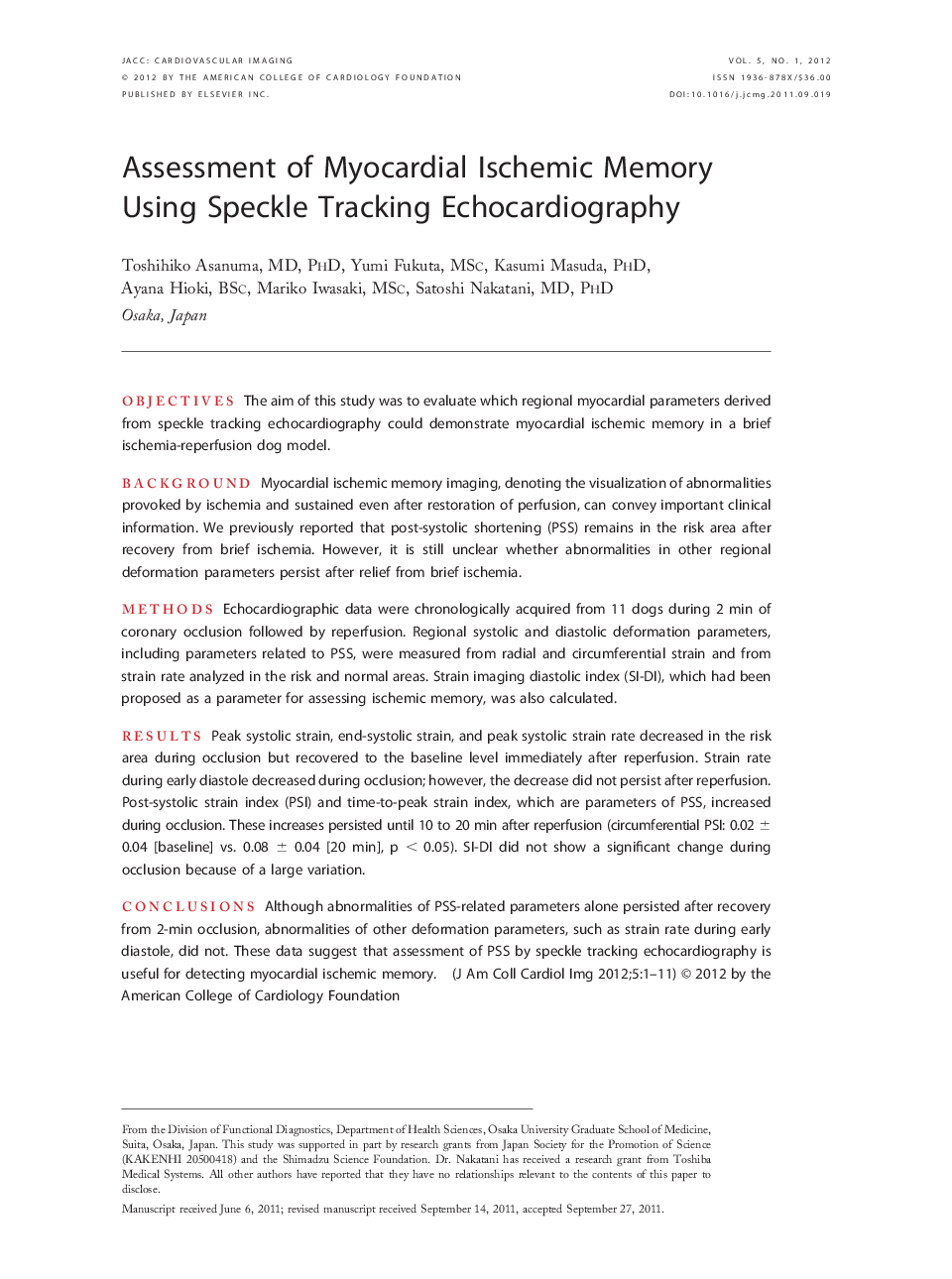| Article ID | Journal | Published Year | Pages | File Type |
|---|---|---|---|---|
| 2938677 | JACC: Cardiovascular Imaging | 2012 | 11 Pages |
ObjectivesThe aim of this study was to evaluate which regional myocardial parameters derived from speckle tracking echocardiography could demonstrate myocardial ischemic memory in a brief ischemia-reperfusion dog model.BackgroundMyocardial ischemic memory imaging, denoting the visualization of abnormalities provoked by ischemia and sustained even after restoration of perfusion, can convey important clinical information. We previously reported that post-systolic shortening (PSS) remains in the risk area after recovery from brief ischemia. However, it is still unclear whether abnormalities in other regional deformation parameters persist after relief from brief ischemia.MethodsEchocardiographic data were chronologically acquired from 11 dogs during 2 min of coronary occlusion followed by reperfusion. Regional systolic and diastolic deformation parameters, including parameters related to PSS, were measured from radial and circumferential strain and from strain rate analyzed in the risk and normal areas. Strain imaging diastolic index (SI-DI), which had been proposed as a parameter for assessing ischemic memory, was also calculated.ResultsPeak systolic strain, end-systolic strain, and peak systolic strain rate decreased in the risk area during occlusion but recovered to the baseline level immediately after reperfusion. Strain rate during early diastole decreased during occlusion; however, the decrease did not persist after reperfusion. Post-systolic strain index (PSI) and time-to-peak strain index, which are parameters of PSS, increased during occlusion. These increases persisted until 10 to 20 min after reperfusion (circumferential PSI: 0.02 ± 0.04 [baseline] vs. 0.08 ± 0.04 [20 min], p < 0.05). SI-DI did not show a significant change during occlusion because of a large variation.ConclusionsAlthough abnormalities of PSS-related parameters alone persisted after recovery from 2-min occlusion, abnormalities of other deformation parameters, such as strain rate during early diastole, did not. These data suggest that assessment of PSS by speckle tracking echocardiography is useful for detecting myocardial ischemic memory.
